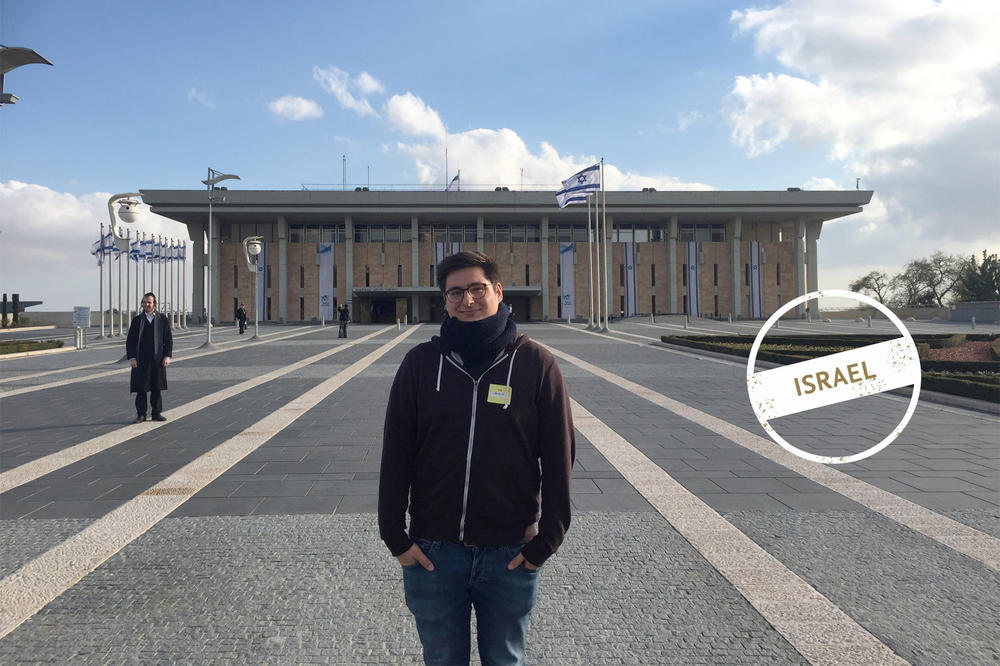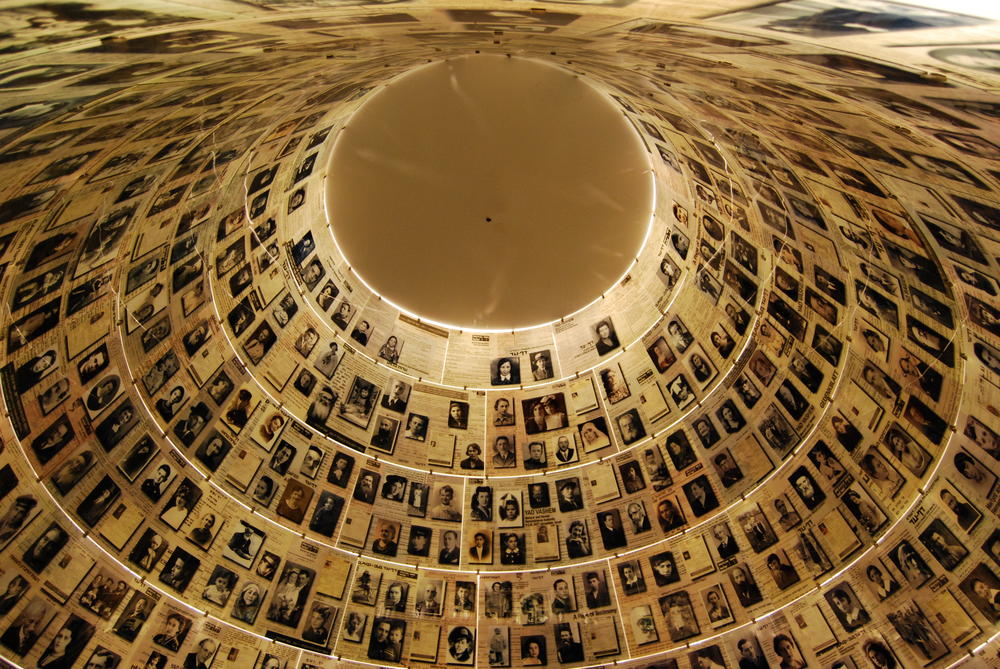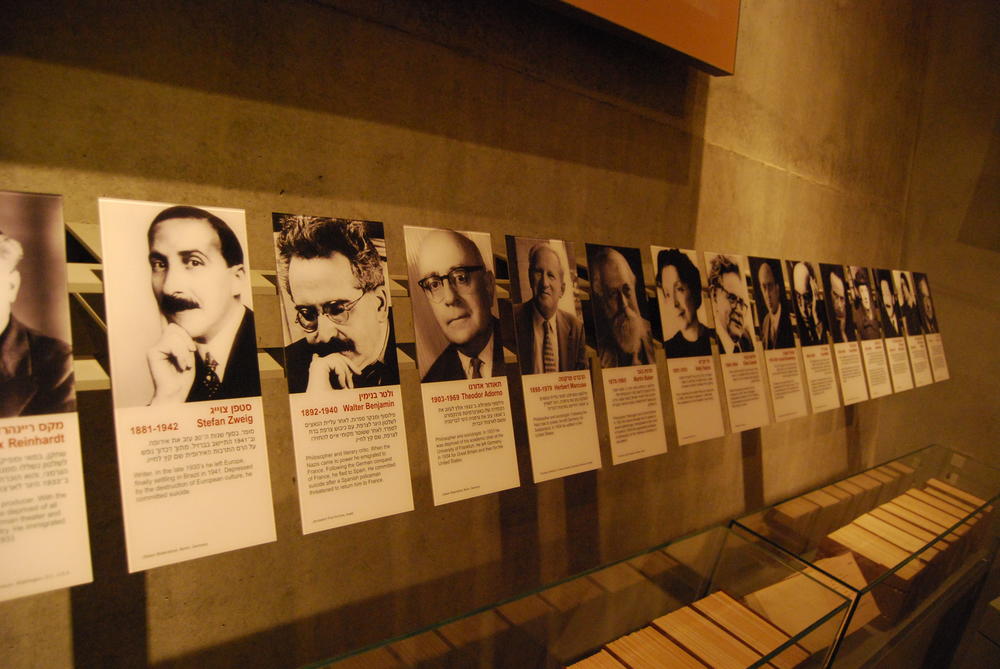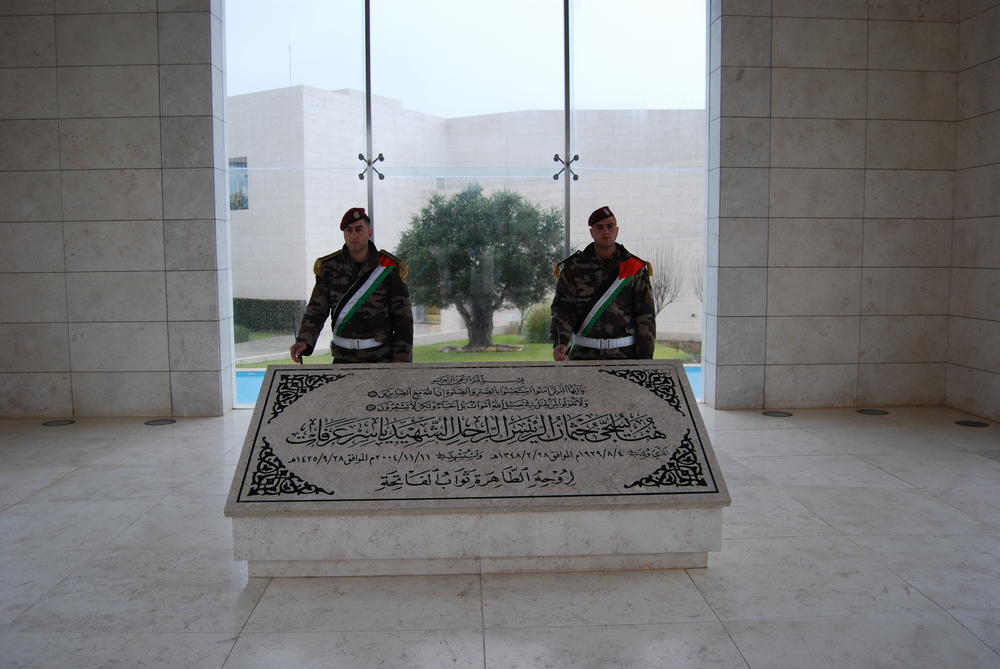Israel between Demonization and Idealization
In his last letter from Jerusalem, Julian Jestadt reflects on his visits to the Yad Vashem Holocaust Memorial and the Arafat Museum.
Mar 17, 2020
Julian Jestadt in Jerusalem, in front of the Knesset, Israel's parliament.
Image Credit: Personal collection
Hundreds of faces look at me: old people, young people, people with a beard, without a beard, with long or short hair, laughing or serious. They look down on me from the inner walls of a dome and remind me of why I came to Israel. I stand in the Hall of Names at Yad Vashem in Jerusalem, Israel's national memorial to the Holocaust. The people who look at me were murdered by the Nazis.
An app shows when there is a missile alarm in Israel. In November, Islamic Jihad from Gaza fired more than 400 missiles at Israel. The cell phone did not stand still, as this screenshot shows.
Image Credit: Personal collection
I come from the country of the perpetrators. My sense of responsibility for ensuring that such a crime against humanity never happens again has brought me to Israel. I wanted to get to know the complexity of the country that was founded as a consequence of the crimes of my ancestors – and about which so many Germans have such strong opinions today.
The Holocaust marks the low point in the millennia-long history of persecution of the Jews. The Zionist idea had developed against this background: a separate state as a shelter for Jews. The Holocaust made this idea more and more urgent, and it was implemented in 1948 when Israel was founded.
As I walk through Yad Vashem, I can sense how important this narrative is for Jews to this day. The last part of the Holocaust exhibition deals with the establishment of the State of Israel. The message: Israel as a shelter for Jews is existential. In the exhibition I encounter droves of young Israeli soldiers, police officers, and school students, all of whom are required to visit the exhibition. All of the Israelis I spoke with had internalized this narrative. And the many Germans who I met in Yad Vashem, in Jerusalem's Old City, or at the university all share it, too.
A plaque in Yad Vashem commemorates the many intellectuals, scholars, and scientists who had to flee the Nazis, including Albert Einstein, Walter Benjamin, and Theodor W. Adorno.
Image Credit: Personal collection
But there is also another perspective with its own narrative. The Holocaust has no place in the Arafat Museum in Ramallah. Jews are not victims here, but perpetrators. For the Palestinians, the establishment of the State of Israel is the Nakba: the catastrophe that is carried on every day through occupation and oppression. Here, too, there are many German visitors who share this narrative.
In front of the Arafat Museum in Ramallah is the grave of Yasser Arafat, an icon of the Palestinian struggle for freedom.
Image Credit: Personal collection
Both of these narratives are often associated with extreme opinions, and especially as a German, I was often torn between them during my stay in Israel. But the seminars at the university in which the narratives were discussed, taught me with disarming frankness that there is an Israel beyond the extremes, beyond idealization, and beyond demonization: it is a country of sober differentiation. In this Israel, neither the Holocaust and the existence of Israel as a shelter for Jews nor the fact of the occupation of the West Bank is denied.
Further Information
This is the last letter Julian Jestadt sent us Jerusalem. He is one of eleven students from Freie Universität reporting on their study abroad experiences. All of the letters are here.
Julian Jestadt’s other letters are here, and here you can find the original German versions of his letters.





